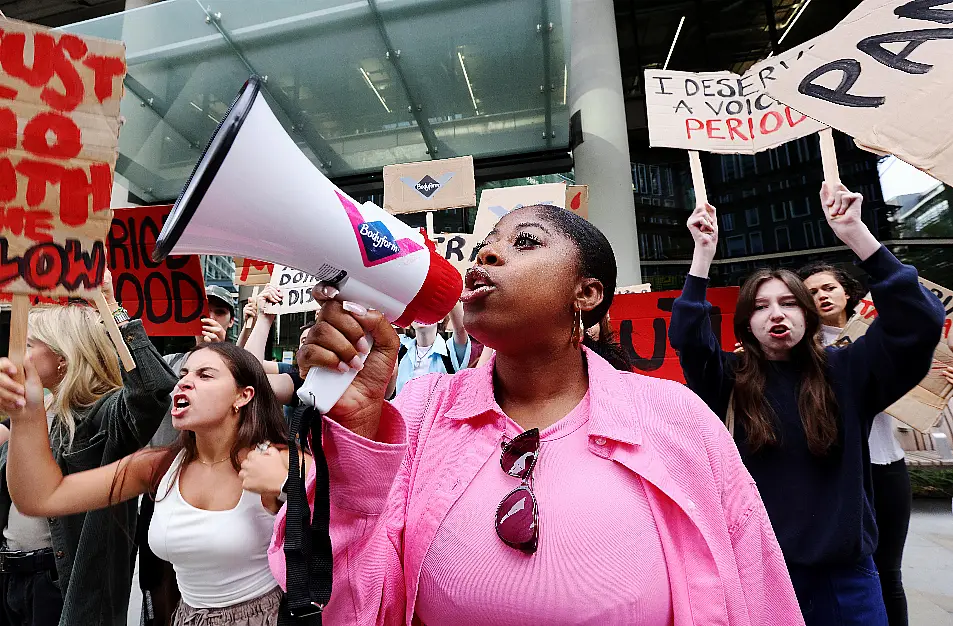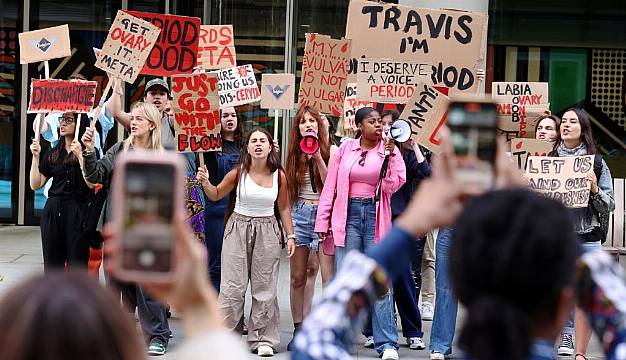Technology giant Meta has rejected an accusation of online censorship as protesters called for language around women’s bodies to be normalised.
Demonstrators gathered outside the company’s London office in King’s Cross on Friday morning.
She Oath, described as a female empowerment charity, joined representatives from period product firm Bodyform, which is running a campaign aimed at normalising use of words such as vagina, clitoris and vulva online.
Bodyform said that since launching its campaign it has been “slapped with multiple violations of Meta’s ad policy – deeming their content as too sexual and labelling it with an 18+ warning”.
It says menstrual health “shouldn’t be censored” and doing so makes “important subjects, that are already taboo, almost impossible to talk about”, affecting lives and health.
But Meta said some adverts had been removed by mistake and had since been reinstated, and apologised for any confusion.
The company said it has no blanket ban on words like menopause or vagina, adding that adverts are governed by a stricter set of policies “because they receive paid distribution to appear in people’s feeds”.

She Oath’s founder Brookmorgan Henry-Rennie said: “We use our platform to educate, entertain and inform around subject matters like authentic confidence, women’s health and well-being.
“So this shadow-banning is not just depriving trauma-experienced girls and women from gaining access to our resources, it’s putting them in further danger. These are our bodies and we shouldn’t be shamed or cast into the shadows for what we naturally have to experience.
“If it wasn’t for Bodyform’s ads being banned, we wouldn’t have even realised that our posts were being deprioritised.
“Meta really does need to do better.”
Ruth Gresty, spokesperson for Bodyform, said: “It’s unfortunate but not surprising that our latest campaign, which calls out the unnecessary censorship of words commonly used to talk about, describe and define women’s bodies and their experiences, has been censored by some social media companies.
“In doing so, these companies have simply underlined the need for campaigns of this nature that seek to break down the barriers that prevent women from being able to speak openly and confidently about their bodies.
“We at Bodyform will not be deterred from our mission to make talking about the female body normal.”
A spokesperson for Meta, which owns Facebook, said: “We want Facebook to be a place where people can express themselves and we are proud of the way our community uses the platform to have important and open conversations about women’s health.
“The adverts were removed by mistake by our automated review systems and have since been reinstated. We apologise for any confusion caused.”







